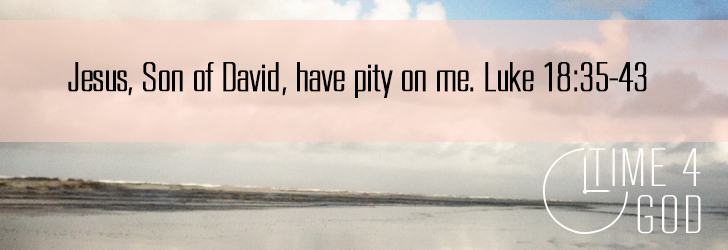Have Pity on Me
This passage speaks volumes about Jesus, about faith, and about our own ʺblindness.ʺ

This passage speaks volumes about Jesus, about faith, and about our own ʺblindness.ʺ This man was a beggar. He was a beggar because he was blind. In the time of Christ, there was often very little sympathy for such people. It was believed that they were sinners, separated from God, therefore, they deserved their state. They were unwanted, rejected, it would seem, by God and by the community. But the blind have ears. This man would have overheard conversations about Jesus and his abilities as a healer. We can imagine that he had heard it all. We can imagine, too, that he had thought about these things, and hoped that he might, by some stroke of luck, have the opportunity to encounter this Jesus, and what he would ask of him. We can also imagine his desperation to be able to see, to be normal and, therefore, to be a part of the community again.
[content-ad]
He hears crowds shuffling by. He has his hand out in the traditional gesture of begging, but feels no coins being deposited there. He hears excited voices. He grabs somebody’s garment and asks who is passing. He is told it is Jesus of Nazareth. He shouts, ʺJesus, Son of David, have pity on me!ʺ (Luke 18:38) People in the crowd try to silence him. We can imagine that this is done angrily. They tell him to ʺshut up,ʺ but he keeps crying out, ʺSon of David, have pity on me.ʺ (Luke 18:41) Jesus hears his cry. He hears the desperation and the sincerity in it. In it he hears also the blind man’s faith and orders those in the crowd to bring the blind man to him. ʺWhat do you want me to do for you?ʺ And the man replies, ʺLord, please let me see.ʺ (Luke 18:41)
It is both the blind man’s persistence and Jesus’ response that we are asked to meditate on here. Jesus’ response to the man’s crying out is, ʺHave sight; your faith has saved you.ʺ Faith? Saved you? Wasn’t he just interested in ʺseeingʺ? But his persistence, we can clearly see, is rooted in more than his personal desire to see. He really believes that this Jesus, is more than just another wandering preacher. He really believes that Jesus has the power to give him his sight. But is there something more too? ʺFaith is confidence in what we hope for and assurance about what we do not seeʺ (Hebrews 11:1) Does this blind man not model that faith? And does not Jesus recognize it in him? This man’s faith has not just restored his physical sight to him, it has revealed the depth of his faith in Jesus. He not only ʺsees,ʺ he is ʺsavedʺ in and through this faith. He ʺsawʺ who this Jesus really was and believed in his mercy. ʺHave pity on me.ʺ
Are we not all blind in some way? Do we not, in the depths of our beings vaguely recognize that? Do we not believe that Jesus desires us to see, not just physically, but with the eyes of faith? It is our belief in Jesus that will not only give us the sight that we desire, but that saves us from the darkness of our blind egos. It is only through our faith in Jesus that we will ʺseeʺ as we ought to see. It is through our faith in Jesus that we are saved from the blindness of our sins. Yes, we are all blind. But because we believe in him, we can be confident that he will fulfill what we hope for and that he is the assurance about the things we do not yet ʺseeʺ. Thank you, Jesus.
SKM: below-content placeholderWhizzco for FHB

